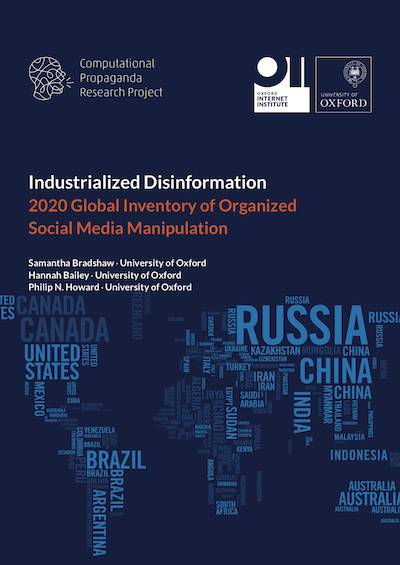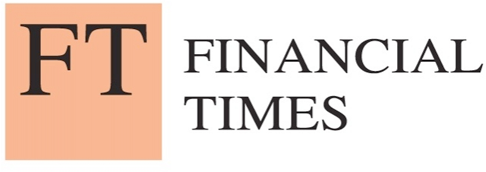This project will focus on how bots, algorithms and other forms of automation are used by political actors in countries around the world.



Samantha Bradshaw was a D.Phil. candidate at the Oxford Internet Institute. She is also a Researcher on the Computational Propaganda Project at Oxford University, and a Senior Fellow at the Canadian International Council. Samantha’s work examines government use of social media for coordinated digital disinformation campaigns. Her research has been featured by numerous media outlets, including the Washington Post, Bloomberg, and the Financial Times. She holds an MA in global governance from the Balsillie School of International Affairs, and a joint honors BA in political science and legal studies from the University of Waterloo. Samantha tweets from @sbradshaww.
Social media and democracy, cyber security, computational propaganda, Internet governance, human rights online, government and politics.
This project will focus on how bots, algorithms and other forms of automation are used by political actors in countries around the world.
By Samantha Bradshaw, Hannah Bailey, and Philip N. Howard
Social media is increasingly used to spread political propaganda. This report outlines the extent of digital manipulation by state actors, despite the efforts of sites like Facebook and Twitter, arguing that it poses a critical threat to democracy.

13 January 2021
The manipulation of public opinion through social media remains a growing threat to democracies around the world, according to the 2020 media manipulation survey from the Oxford Internet Institute, part of the University of Oxford.
11 October 2019
A new report from the Oxford Technology and Elections Commission (OxTEC) has found many of the self-regulatory measures taken by social media platforms have failed to prevent the spread of disinformation.
26 September 2019
Organised social media manipulation campaigns are now prevalent in 70 countries around the world (more than doubling from 28 in 2017), finds new Oxford Internet Institute report.
20 July 2018
The manipulation of public opinion over social media platforms has emerged as a critical threat to public life.

Financial Times, 11 January 2024
Experts fear 2024 could be the year a viral undetectable deepfake has a catastrophic impact on an election

International Journalists' Network, 20 October 2022
Coordinated attempts to manipulate social media are ongoing in 81 countries and constitute a growing threat to democracy worldwide, according to a 2020 Oxford Internet Institute report.

Middle East Eye, 11 August 2022
In an exclusive extract from his new book, Marc Owen Jones explains how governments and non-state actors use social media and digital technology to deceive and control citizens.

Professor of Internet Studies
Philip N. Howard is a professor of sociology, information, and international affairs. He is Director of the Programme on Democracy and Technology, and is a Professorial Fellow of Balliol College.

Associate Professor
Joss Wright's research interests lie in information controls, privacy-enhancing technologies, and cyber-enabled crime. His current research focuses on measuring internet censorship, and uncovering the online illegal wildlife trade.